QuestionI have a 4 sows that I would like to breed. None of them have been bred before. They are ages: 4 months, 6 months, 8 months, and 1 year. Is the 4 month old too young to breed? Is the 1 year old too old to breed? What is the normal breeding ages? How often can or should you breed your sows? At what age should you retire a sow from breeding?
I have one boer guinea that I just got. I think he is between 3-4 months old (don't remember his b-day off the top off my head. He weights 1lb and 1 oz. Is he too young to breed? or should he be able to breed to my sows? Are boers good for breeding even at old ages?
I have to tag my guinea pigs to show them (I am just starting out) but I have showed rabbits in arba shows. I was wondering what age is best to tag them at? Where is a good place I can order tags and pliers at?
Thank you very much,
Angelica :)
AnswerLet's start at the top: The four month old is not too young to breed, but I would wait a few more months and breed her before she's a year old. If you're wanting to show them you don't want them pregnant. If the judge can feel babies he/she may disqualify the pig. If that's not reason enough the main concern is the health of the sow. You don't want her exposed to other elements, strange pigs and mostly you don't want to stress her while she's pregnant.
Most pigs don't show again once they've been put into breeding. That's most prevalent in the longhaired coated animals as they are trimmed to breed and will never get the density back in their coats. Some sows handle litters well and can be shown a couple more times after weaning. But just like humans they begin to lose their girlish figures and are never quite at the top of their game like they were before breeding. Generally they're retired after about three years of age.
A boar can be put into breeding once they reach 32 oz. Younger than that they may try (and sometimes will be successful) but are really at their prime when they reach eight months to a year and can continue to breed for about four more years. There are exceptions of course and some will continue to breed until they stop breathing.
Since you've already show rabbits at ARBA shows you have most of the basics already. There is a bit of difference with pigs and rabbits when it comes to their showing prime. Rabbits show better as they get older and cavies are just the opposite.
You can get ear tages through the net. We have KW Cages that comes to most of our shows and we preoder supplies which are brought to the shows. You can also just order online by going to kwcages.com. The ear tags are sold in batches of 100 and you can also purchase the pliers. The best way to learn is to practice on a stuffed animal with felt ears. The tags must go in the left ear and as close to the head as possible.
The age of tagging depends on the pig. Small babies' ears are too thin and they'll pull out the tag and rip the ear. About two and half to three months is the earliest to try. Once the ear is torn you can put on another tag but you hate to see a beautiful ear damaged.
Judges do excuse a torn ear when it's obvious that a tag was there and ripped through. They don't dq a damaged ear that is chewed, but they do fault it.
My most important suggested before you start breeding is to know what is and is not a good candidate for breeding. Get stock from a reputable breeder, know the animal's pedigree or background so you know what you're breeding for. That saves you from years of mistakes and heartbreaks.
As I'm sure it is with rabbits you have to expect that a breeder will not sell you Best In Show stock right off the bat. That's not to say you can't purchase a very promising baby that will become a BIS, but don't expect too much too soon. Most of us started out with baby steps and it takes two to three years to begin breeding your own winning stock.
If you are able to attend a cavy show take your pigs with you, ask an experienced exhibitor to look them over and give you an opinion. Judges are happy to do that as well during their breaks. That way you don't go into it blind. You want good animals, no coat faults, pea eye, etc for breeding. Exhibitors are always happy to share their experiences, and judges are happy to assist to help get you started. After all, the newbies are our future.
Best of luck to you, and if you have anymore questions please feel free to ask.

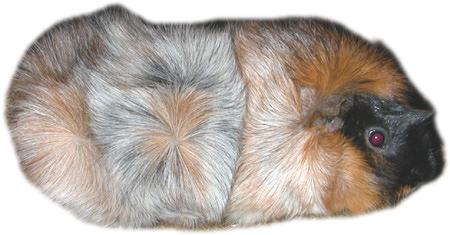 g. pig temperament
QuestionHello. My husband and I owned a very doci
g. pig temperament
QuestionHello. My husband and I owned a very doci
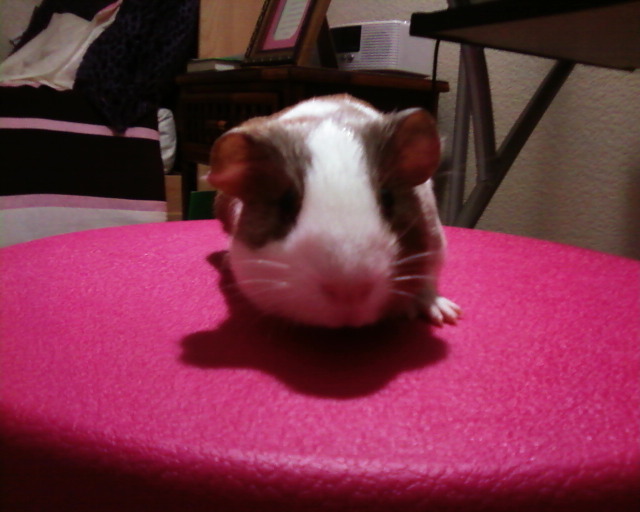 Crazy piggy
Questionpicture of Coco
QUESTION: Hello, well I
Crazy piggy
Questionpicture of Coco
QUESTION: Hello, well I
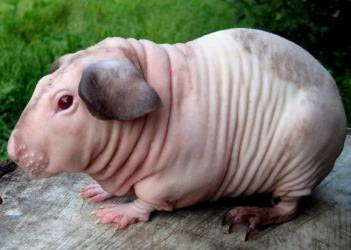 Guinea Pig Genes?
QuestionI have a male Dalmatian guinea pig, and I have
Guinea Pig Genes?
QuestionI have a male Dalmatian guinea pig, and I have
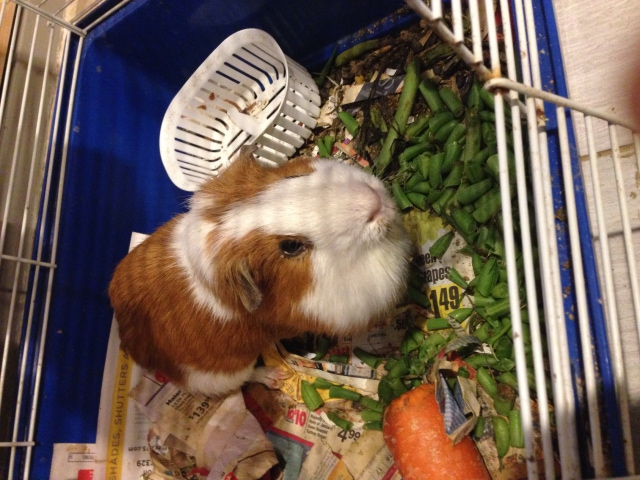 Swollen face and white pus on eye
Question
Bugsay
My pig is about 7 yo. Recently w
Swollen face and white pus on eye
Question
Bugsay
My pig is about 7 yo. Recently w
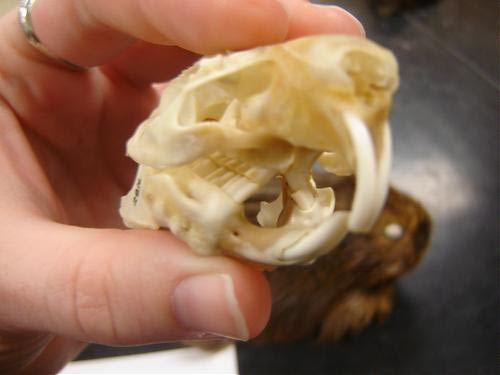 Malocclusion
QuestionQUESTION: My guinea pig has stopped eating and
Malocclusion
QuestionQUESTION: My guinea pig has stopped eating and